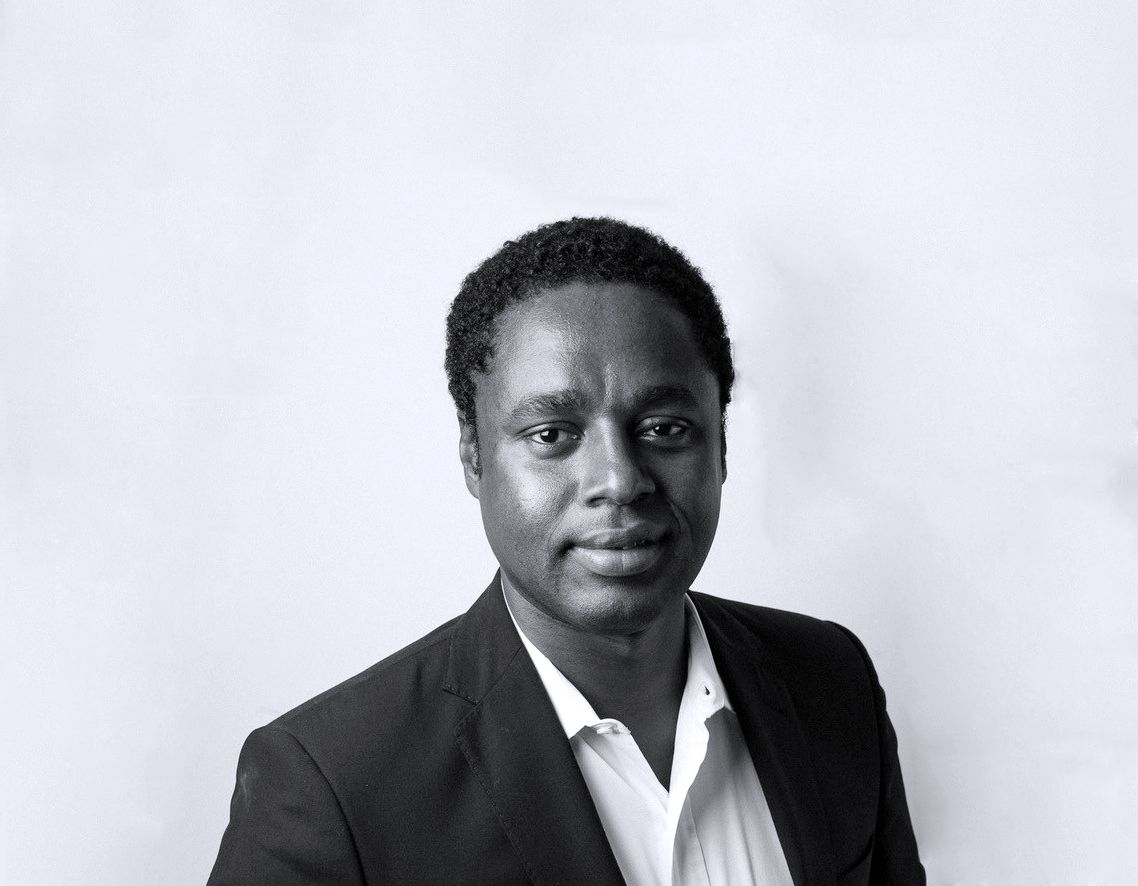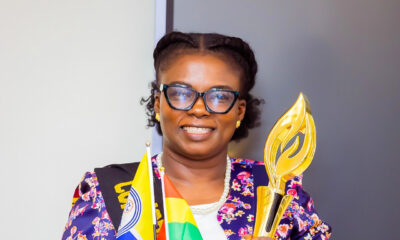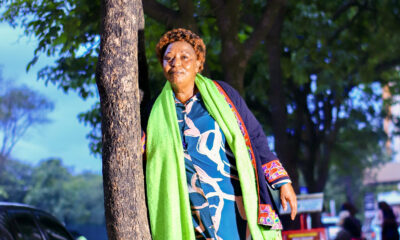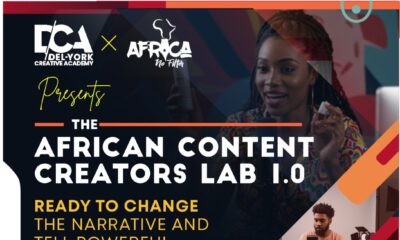Career
Claude Grunitzky has the golden touch when it comes to telling stories from Africa

Claude Grunitzky is an expert at turning simple ideas into compelling stories that leave audiences wanting more. That’s a formula that saw him sell one of his early creations—Trace—(precursor to the widely popular Trace TV) in his 30s. His latest foray into African media, TRUE Africa, sees him doing the same while making his content widely accessible via podcasts. He keeps blazing trails.
Take his latest idea of telling us the “simple things happening in Africa now”.
“There are a lot of young girls and women who are very active in STEM and programmes created to help women learn to code, creating a new generation of digital entrepreneurs. It’s a simple story—some African women love mathematics and are good at it. Some are high achievers in academic circles. We took this simple story and expanded it with a precise angle about what girls and young women are doing and telling a chronological story, from getting a skill set,” explains Gurnitzky.
It is evident, says Grunitzky, that young girls and women in Africa are “creating industries that Africa needs for its place in the world.”
And so, “with a twinkle in my eye,” he says, he had another simple idea: why not profile young girls and women in Africa who are breaking the glass ceiling in male-dominated industries with careers that are a testament to the power and impact of women in Africa?
“Limitless,” the resulting editorial series, started in 2021 with feature stories about girls and young women who turned simple ideas into successful careers and businesses in fields like arts and culture, literature, technology, telecommunications, medicine, and media, aviation, science, and entrepreneurship.
“Limitless” is now also a free eBook featuring 21 of these trailblazers. Their accomplishments include running a telecoms company, being one of only a few black female neurosurgeons in South Africa, redefining Africa’s approach to venture capital, being the first to write science fiction in Botswana, turning from a journalist to a high-impact PR professional, and being a musician in Kenya who is pushing the limits.
“Limitless paints a different picture that is not often seen in traditional media. Because Africa’s birth rate is so much higher than in other parts of the world, traditional media paints the picture that African women are providers, mothers, and nurturers. We are showing that certain women are choosing a different path of achievement, building things and creating in sectors and environments normally dominated by men.” He explains that women who don’t get a lot of press attention but are making change happen behind the scenes are not taking the credit.
More than anything, Limitless is an ode to his mother, who inspired the idea. Grunitzky had a bad bout of COVID-19 before the vaccines were developed. His mother helped take care of Claude and his partner’s four-year-old son.
“I ended up having many conversations about what would have happened had she gotten an education. She never finished primary school; she was in the generation where women were not supposed to go to school. They were guys who were sent to school in my home country, Togo. She was telling me about the life that she could have had had she benefited from education, an environment with emulation and simulation that would push women to achieve,” Grunitzky says.
“She ended up becoming a seamstress, and that was very respectable. Still, as an intelligent woman who is extremely astute in reading people and situations, she could have done a lot, so I started thinking about women in the new generation who are refusing the status quo and changing norms because they don’t want to be confined to the roles that African societies have imposed on them,” he adds.
Grunitzky began talking to high-achieving friends, who then recommended more friends, and TRUE Africa soon had a list of over 100 women.
“The hard part was narrowing it down to 21 women, and we wanted to do that so that we would have diversity in representation, geography, and industry; technology, environment, engineering, and that sectoral balance were important as well. We wanted to focus on young women who were teenagers and young adults, and women who were blossoming into high-powered positions.”
In addition to the eBook, which was made in collaboration with Africa No Filter, “Limitless” also gave birth to a podcast that is available in English, French, and Portuguese.
Grunitzky believes that the key to success is finding your lane and winning formula and turning this into more impact. This is what turned his first venture, Trace magazine, into a pioneering platform. Back in his 20s, he saw a gap in hip hop, R&B, and black culture in London.
Trace’s appetite for impact grew as he became “extremely influential in the world of Hip Hop, R&B, and Black culture in general,” and he relocated to New York to be on the biggest media stage and the centre of a specific type of Black and Hip Hop culture.
Trace was the first publication to write about black culture from a global perspective, with news and perspectives from places like Ghana, Brazil, and Japan. His lane? Trace became a media company, funded by Goldman Sachs, and that became a winning formula because Trace became a media company. “Always placing the black experience and creativity at the centre of our storytelling,” Grunitzky says.
He sold Trace in his 30s. “I was full circle, having started in my bedroom, funded by one of the most prestigious financial services companies, and then growing around the world and active in America, Europe, and Africa.”
Grunitzky’s next simple idea was to turn his focus to Africa. “I felt that the continent was the next frontier of the stories that needed to be told, and demographically speaking, the world’s growth was going to come from Africa over the next century.”
He wanted to be a catalyst for the telling of African stories and to champion young African voices worldwide, “always starting with that pride that comes with an African who is not ashamed of having a different point of view and who doesn’t live with the burden of these post-colonial inferiority complexes that many Africans have.”
TRUE Africa’s launch was a roaring success. The platform had more than 300,000 readers within six months of its launch. However, 2017 proved challenging. TRUE Africa’s traffic came from Facebook, so when the platform changed its algorithms to fight misinformation in the lead-up to the US presidential elections, TRUE Africa had less prominence on the Facebook feed. The loss was felt instantly.
“We could shut it down or keep it moving,” he recalls.
He wrote a proposal to the Google News Initiative.
“The substantial funding that allowed us to live to tell the tale. We also started thinking about how else we could grow and looked at funding models beyond advertising revenue,” Grunitzky says.
TRUE Africa University was born. It’s an online learning platform for storytellers. It offers courses, masterclasses, and mentorship by leading media experts. It’s supported by the Massachusetts Institute of Technology.
“The education piece is the most important part of what I am doing. I benefited from real mentorship while coming up as an entrepreneur and successful people showing me the ropes,” he explains.
Grunitzky says founding True Africa put him in vibrant ecosystems and allowed him to work with emerging writers, social media managers, and photographers from across the continent. He realised that while brilliant, many of them worked in silos and didn’t have anyone showing them how to grow, make a living, establish their reputation in the industry and be successful. To this end, TRUE Africa established a mentorship system to help its talent learn from the best in the industry.
“With the university, the training element can also be impactful in the long run,” he says. “The pivot allowed us to thrive,” he adds.
TRUE Africa has also started making movies about the problems and successes in Africa that have to do with the environment.
“TRUE Africa is going to become, over time, an important player in the media in Africa.”
At the heart of his success lies Grunitzky’s conviction that there are no limitations to what a brand can do with African stories—turning simple ideas into compelling content that connects the continent.
Story Credit: Lerato Mogoatlhe for bird story agency























